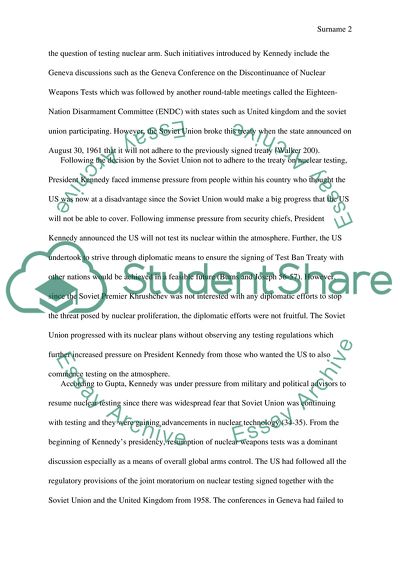Cite this document
(John F. Kennedy and the Escalation of Nuclear Proliferation Literature review Example | Topics and Well Written Essays - 2500 words, n.d.)
John F. Kennedy and the Escalation of Nuclear Proliferation Literature review Example | Topics and Well Written Essays - 2500 words. https://studentshare.org/history/1812395-did-john-fkennedy-escalate-the-nuclear-proliferation
John F. Kennedy and the Escalation of Nuclear Proliferation Literature review Example | Topics and Well Written Essays - 2500 words. https://studentshare.org/history/1812395-did-john-fkennedy-escalate-the-nuclear-proliferation
(John F. Kennedy and the Escalation of Nuclear Proliferation Literature Review Example | Topics and Well Written Essays - 2500 Words)
John F. Kennedy and the Escalation of Nuclear Proliferation Literature Review Example | Topics and Well Written Essays - 2500 Words. https://studentshare.org/history/1812395-did-john-fkennedy-escalate-the-nuclear-proliferation.
John F. Kennedy and the Escalation of Nuclear Proliferation Literature Review Example | Topics and Well Written Essays - 2500 Words. https://studentshare.org/history/1812395-did-john-fkennedy-escalate-the-nuclear-proliferation.
“John F. Kennedy and the Escalation of Nuclear Proliferation Literature Review Example | Topics and Well Written Essays - 2500 Words”. https://studentshare.org/history/1812395-did-john-fkennedy-escalate-the-nuclear-proliferation.


